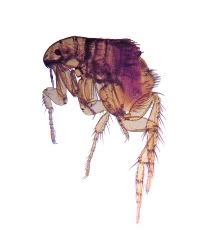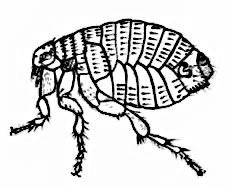 Since I recently completed Flea Control Secrets (after extensive research and fact checking) it is a shock to see how much inaccurate flea treatment advice circulates.
Since I recently completed Flea Control Secrets (after extensive research and fact checking) it is a shock to see how much inaccurate flea treatment advice circulates.
Many people seek information on how to kill fleas, and although the advice shared may be well meaning, it can be downright deadly to your pet!
There is also a lot of conflicting information regarding the safety of “natural flea remedies.”
Believe it or not, some of those natural flea control treatments can be just as toxic as some of the chemical products available…more on that later.
Since the EPA Advisory I’ve been waiting to see if their update is going to appear (originally targeted for this month) but no word yet.
In the meantime two interesting announcements were released, Frontline Plus has launched a flea treatment reminder service and a study was finally published concerning the discovery of another flea and tick control product (funded by Merck).
I keep updates at Twitter so make sure to follow me there!
 I’ve been working on a book on flea control treatment and am amazed at all the news out there about flea and tick products and issues. This work should be available within a week or so.
I’ve been working on a book on flea control treatment and am amazed at all the news out there about flea and tick products and issues. This work should be available within a week or so.
